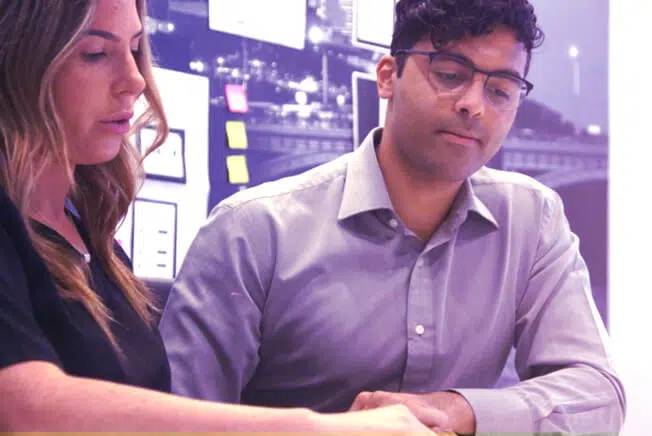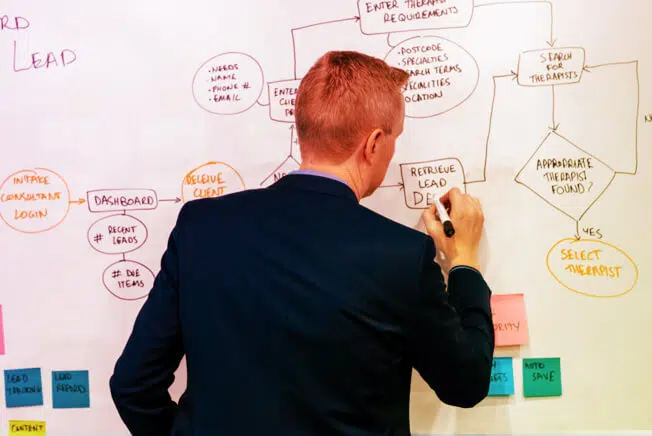
Market Validation for New Ventures
How is a tech startup going to test interest in their product, avoid overspending in the wrong areas of development, or get a sense of when it is best to make adjustments to their product? Learn to avoid the most costly mistakes by following our recommendations to plan for success by checking out the list of topics below.
Tech startups have an incredible potential for success, but it is an intricate, risky field. True success requires organising the right team and avoiding critical pitfalls. It requires knowing the risks to watch for and developing a system for validating one’s potential in the market. This means learning how to utilise processes and patterns that are known to help with everything from long-term projections to managing technical project details, data, and money.

How to Plan a Software Project
Every software development project is unique, and behind every product there’s a team organised to a common plan. There are countless points that can determine how costly a project becomes; which requires taking into account the technical requirements and skills needed, and how to handle communication across the entire team.
There are numerous systems to best manage a project, including a set outline of procedures designed to accomplish predetermined goals. This includes learning about inputs, processing, and outputs; using spreadsheets to track and map processes; having a way to gauge problems and adjusting to correct them; and a myriad of skills we’ve mastered over the years. Learn how to formulate your own software project planning by visiting the set of links below
- How To Plan A Software Project Using Our Range Of Helpful Techniques
- Creating A System By Modelling Inputs, Processing, and Outputs
- Understanding Business Logic With Spreadsheets
- Learn How to Use A Data Model System That Saves Time And Money
- Learn How to Create Systems That Work
- Improve Your Business Processes Using The User Journey Method
- Learn How Our User Stories Method Can Help Unify Your Project

IP, Testing, Security, Scalability
If you’re working to develop a truly unique piece of software, it’s vital to understand that this is your own piece of intellectual property, or IP. There are complex pitfalls and blind spots when working with a development team, so you must understand how to protect your investment throughout testing, security, and scalability.
This means you need clear methods for handling data, protection management, preparing for changing developers, handling the expense of testing, and much more. Not only will you need to protect your IP, but you also have to consider cyber security to make sure your servers are safe.
Since every decision and every step includes a financial impact, you also have to consider where money is best spent, from the type of server plans to managing a team you can afford. Learn from the links below to gain insight on the best ways to protect your ideas and your data while building your way to a successful software venture.

Technology Options, Pricing and Tips
Your company’s efficiency is directly tied to the tools that support your work. Do you need something customised for your own process, or are there programs already available to help you streamline? Once you have a grasp on the tools you need, you have to focus on the best way to implement your own design, whether pricing for a project or finding ways to save by paying for hourly work.
You can avoid some of the unknown risks in the early stages of development by learning from the insider view of the Alliance development team. In the links below, you’ll gain powerful wisdom about choosing the right team for your projects and how to communicate with developers on their terms to get the best resulting work.

Finding and Assessing Developers
You may save money by hiring offshore developers, but that isn’t a guarantee. If you’re looking for someone in Australia and the cost is still very low, there’s a good chance they’re actually an offshore company with a presence in the country.
The truth is that the right developer that can understand your needs, your budget, and provide you with the right type of staff may save you time and money in the end. Whether you’re saving money with offshore developers depends on complexity, communication, feedback and testing, and many other factors. You can avoid the heartache and headache of hiring the wrong teams by providing intelligent coding tests and knowing the right questions to ask.
Take a look at the topics below to gain a deeper understanding of how to choose the developer that is right for you.

Waste Methodologies, Kanban and Ideals
Learning to cut costs and streamline processes is a vital part of the software development process. Waste is not only a strain on cost, but on all of your valuable resources and this includes the development team. Reducing waste means being able to identify inefficiency and knowing how to make adjustments.
We’ve identified seven major types of waste to watch for, and several organisational processes that can be used to plan, gauge workflow, and determine the final format for the software product. This means knowing how to set goals and work with a team that can adjust to the right patterns and timelines.
In this section, we’ll cover the waterfall organisational strategy for projects that can adjust to being locked into place without future adjustment, the agile technique of breaking formats into smaller pieces for structured communication, as well as lean methodology for flexibility without the risk of too much interference, and last – but not least – the Kanban approach for accountability, progress monitoring, and use of visuals. Visit the links in this section to learn about these techniques and see how they can help you to reduce waste.
- How To Eliminate Waste In Software Development
- Discovering The Seven Types Of Waste In Software Development
- Understanding Waste And Software Development
- An Introduction To Software Development Methodologies
- How To Develop Software Using Waterfall Methodology
- How To Create Software Using Agile Methodology
- Learn How To Use Lean Methodology For Successful Software Creation
- How To Organise A Successful Software Development Process
- Getting To Know The Kanban Scheduling System
- How To Organise A Successful Software Project

Venture Capital Funding
From milestones to long-term goals, exit strategy to valuation, there are critical decisions to be made when funding your software startup. In order to make the right connection with a potential backer, you have to learn to think like them and understand your numbers the way they need them presented. What are your assets, your expenses, challenges with competition?
Knowing the right numbers and the likely concerns can make all of the difference in connecting with an investor. If your software project needs an outside investor, it is crucial to the future of the product that you know the expectations of the investor. Some take a long-term interest while others hope to earn a fast profit. Before you take on an investor, you have to have a deep understanding of your company, its strengths and weaknesses, and potential in the marketplace. Early investments are higher risk, while proof of your product’s importance can go a long way to leverage the best investment with the least amount of strings attached.
Take a look at the following links to get an idea of the road ahead before jumping in head first. Choosing the right kind of investor may prove to be the single most important decision you make for your software’s future.
- Learn How To Make Tech Startup Financing Work For You
- Early Stage Tech Startup Funding
- Learn The Secrets To Tech Startup Management
- What You Should Know For A Winning Startup Funding Pitch
- What To Look For In A Winning Tech Startup For Investment
- Understanding The Financial Health Of Early Stage Tech Startups
- How To Think Like Tech Startup Venture Capitalists
- How To Strategise Timing For Investing In A Tech Startup
- Understanding The Mindset Of Tech Startup Investors